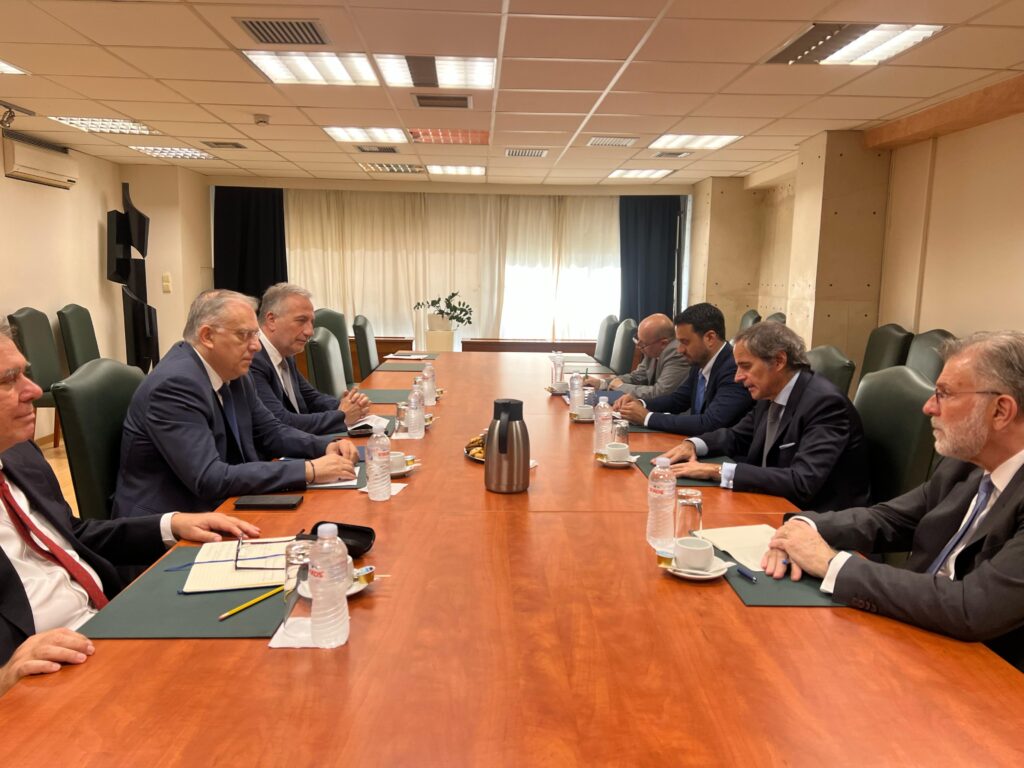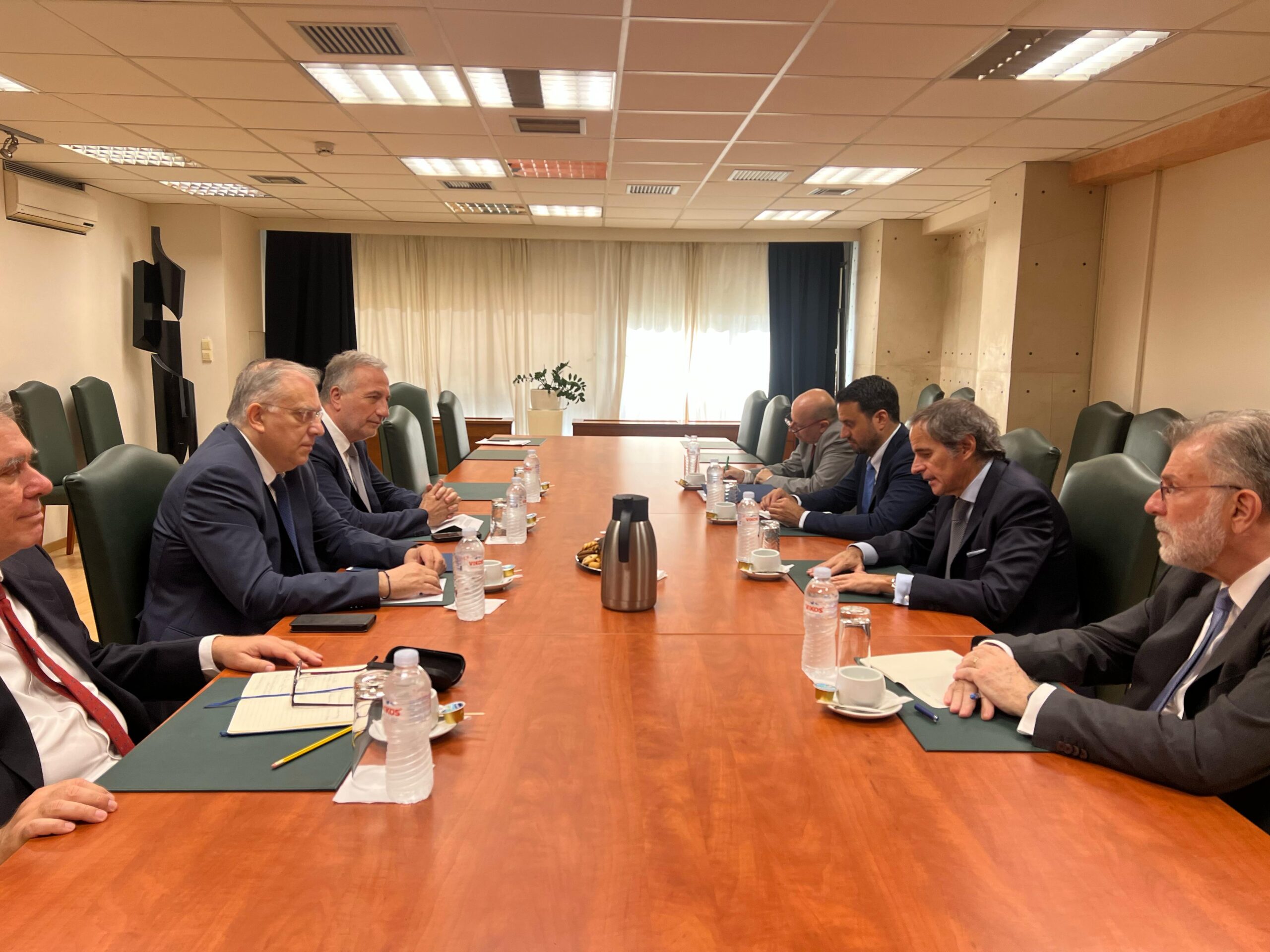
The head of the International Atomic Energy Agency (IAEA) Rafael Mariano Grossi met the Union of Greek Shipowners (UGS) last week in Athens. The discussions were focused on how nuclear science and technology can help decarbonise one of the world’s most critical sectors, shipping.
The talks come as the IAEA launches its Atomic Technologies Licensed for Applications at Sea (ATLAS) project, an initiative aimed at establishing a framework for the safe and secure deployment of civil nuclear applications at sea. The IAEA, in co-operation with the IMO, will oversee and guide this global effort, using its established standards for nuclear safety, security, and safeguards.
The project is targeting multiple maritime applications including ports, harbours, and offshore industries.
Grossi, director general at the International Atomic Energy Agency (IAEA), unveiled the project during an initial fact-finding workshop in London last August, hosted by class society Lloyd’s Register (LR), which brought together nuclear and maritime regulators, including the IMO, operators of nuclear assets, insurers, and ports to address the challenges and opportunities of deploying nuclear technology in the maritime environment.
Greece consistently ranks as one of the world’s largest ship-owning nations, controlling a significant portion of the world’s commercial fleet.
As it is reported, IAEA stands ready to work closely with Greece as it explores new opportunities in nuclear science and technology.
In Athens, Grossi held discussions with Greece’s ministers of foreign affairs and development, George Gerapetritis and Panagiotis (Takis) Theodorikakos, defence minister Nikos Dendias, as well as with the prime minister Kyriakos Mitsotakis, the EEAE-Greek Atomic Energy Commission, and the leadership of the Union of Greek Shipowners.
“We exchanged on different topics such as nuclear science and tech for maritime decarbonisation, the AI–nuclear nexus, and the worldwide mission of the IAEA. Greece’s support for nuclear safety in Ukraine and worldwide is greatly appreciated,” Grossi wrote in a post on social media LinkedIn, adding that “The potential for collaboration through International Atomic Energy Agency (IAEA)’s ATLAS initiative for cleaner maritime trade is strong.”
The Greek ministry of foreign affairs confirmed the meeting in its official website on May 29, mentioning that the discussions focused on regional and global developments, nuclear safety, and the peaceful use of nuclear energy.
Greek prime minister Kyriakos Mitsotakis emphasised the importance of nuclear energy for Europe’s energy self-sufficiency during the 28th Annual Economist Government Roundtable conference last year.
He stated, “There is no way [for Europe] to reach carbon neutrality without nuclear power.”
“Europe was and still is a leader in nuclear technology,” he said, adding that “Greece is not a country that has nuclear energy.”
In particular, Kyriakos Mitsotakis made a special reference to nuclear energy, putting on the table a basic concern for the next EU energy day.
Mr. Mitsotakis emphatically raised some questions about the issue: “Are we investing as Europeans in the next generation of small nuclear reactors? Have we really placed our chips where we should in this green transition, at least identifying three, four critical industries? Are we investing in our interconnections to the extent that we should?”
The prime minister pointed out Europe’s loss of competitive advantage in renewable energy technologies to China and the US.
He acknowledged that Europe “may never become as competitive as China in the production of commodities such as photovoltaic panels.” Opinions that are definitely “food for thought”.
Public perception remains a significant hurdle for nuclear adoption.
Mark Tipping, Global Power to X Director, LR, emphasises the importance of transparent communication to build societal trust.
“We need open dialogue about nuclear technologies-their risks, advantages, and environmental impacts,” he said. “This isn’t about convincing the public that nuclear is safe; it’s about demonstrating it through evidence and engagement.”



